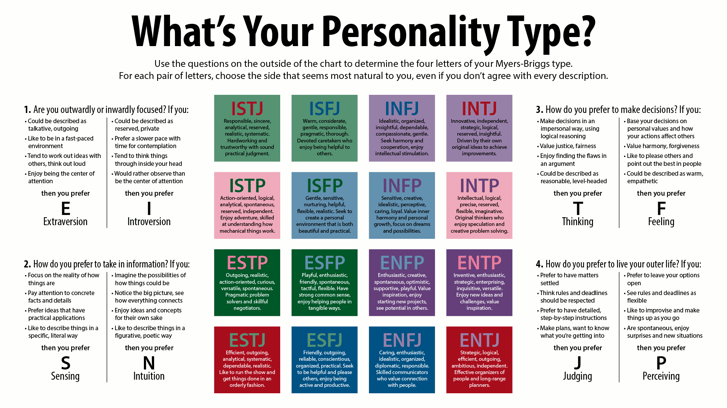Want to hire individuals immediately, but finding it extremely difficult?
Well, hiring is undoubtedly a daunting task. Plus, the urgency of filling the position with the right candidates makes it more challenging.
That is why having a pre-employment assessment is a must-have today. It can transform your talent pipeline. Enhance the hiring experience for both employers and employees.
By using employment tests recruiters can identify suitable candidates for a job while minimizing the risk of making the wrong hire, which can be costly and time-consuming. These assessments are designed to evaluate a candidate's skills, abilities and personality traits providing insights that aid employers in making hiring decisions.
In this article we'll delve into what pre-employment assessment test is, why they matter to both employers and job seekers and explore types of tests available in today's market.
Let's jump right in.
|
Table of Content #1 What is a Pre-Employment Assessment Test? #2 Types of Pre-employment Assessment Tests #3 Benefits of Pre-employment Assessment Tests |
What is a Pre-Employment Assessment Test?
A pre-employment assessment test is essentially a screening tool that employers use to assess the skills, capabilities, personality traits and other pertinent qualities of job applicants.
The objective of these assessments is to ascertain whether an applicant aligns well with both the job requirements and the company's culture.
Keep in mind that pre-employment evaluations can come in formats, such as tests, skills assessments, personality evaluations and behavioral interviews.
|
Are you concerned that lengthy screening processes are impacting candidate experience? Check out how iMocha can help you reduce your hiring time by 40%! |
Types of Pre-employment Assessment Tests
1. Cognitive Ability Tests
Cognitive assessments are used to assess an applicant's problem-solving skills, ability to learn information and logical reasoning. Recruiters utilize these tests to evaluate a candidate's capabilities and gauge their potential for success in a specific role.
In other words, these assessments are highly effective in evaluating an individual's abilities encompassing their aptitude for problem-solving, thinking and proficiency in verbal and numerical reasoning.
Such assessments often cover topics like mathematics, logic and language comprehension.
.webp?width=1012&height=646&name=MicrosoftTeams-image%20(5).webp)
Here is a list of 88+ cognitive pre-employment tests to help you assess your talent’s cognitive abilities.
2. Personality Tests
Personality assessments are used to gauge an applicant's disposition and qualities such as stability, conscientiousness and extroversion.
These evaluations are specifically designed to measure an individual's personality traits and characteristics.
They assist employers in evaluating the following;
- How well an individual will integrate into the company culture.
- How they will engage with colleagues and customers.
Some of the recognized examples of personality assessments include the Myers Briggs Type Indicator (MBTI) the assessment of Big Five personality traits and the Hogan Personality Inventory.

3. Cultural Fitment Test
Cultural fit assessments typically involve comparing a candidate's preferences for culture with the actual culture of the company they are applying to. This allows companies to gain insight into how an applicant's values align with the values of the organization.
Candidates who demonstrate cultural fitness contribute to creating a positive work environment fostering effective teamwork and enhancing employee engagement.
4. Soft Skills Test
Soft skills refer to the technical abilities required to excel in a job, such as effective communication, problem solving capabilities, teamwork and integrity.
When evaluating candidates, for a position recruiters can focus on assessing individuals who possess the skills particularly if the specific tasks associated with the job can be acquired through learning and experience.
|
Looking for a pre-employment testing tool that also tests soft skills and aptitude? Try iMocha. |
5. Job Knowledge Tests
These assessments are created to evaluate a person's expertise in an area or industry. They assist employers in gauging an individual's grasp of concepts, principles and practices that's relevant to the job position.
Some instances of knowledge tests for jobs include the National Council Licensure Examination (NCLEX), for nursing professionals the Project Management Professional (PMP) exam and the Certified Public Accountant (CPA) exam.
6. Skills Tests
There are various types of skills tests that help assess an individual's specific skills in a particular area or field.
More specifically, they help evaluate an applicant's proficiency in specific job-related skills, such as typing, coding, or writing. They can help employers evaluate an individual's proficiency in tasks that are critical for a particular job role.
Platforms like iMocha offer a variety of pre-employment tests in areas such as coding, digital marketing, and software testing. Here are some of the platform's most unique and recruiter-friendly features:
- AI-LogicBox
AI LogicBox functions, as 'Code in the Blanks' offering an intelligent approach to coding compared to traditional coding assessments. It prioritizes implementation and creativity, over syntax.
By utilizing intelligence, it evaluates the problem-solving skills and critical thinking abilities of individuals taking the test.
The AI LogicBox presents scenarios. Challenges that necessitate the test takers demonstration of logical reasoning to solve problems.
- Live Coding
The Live Coding feature is designed to assess the coding skills of test-takers in real time:
It allows recruiters to evaluate a candidate's coding abilities by presenting them with coding challenges that they must solve within a set time limit. The Live Coding feature supports several programming languages and frameworks.
|
Want to identify high-potential candidates easily? Utilize iMocha's digital skill assessments. |
Benefits of Pre-employment Assessment Tests
1. Helps Predict Job Performance
One of the benefits of incorporating pre-employment assessment tests is their ability to gauge the skills, knowledge and abilities of candidates which are crucial for achieving success in a job.
By assessing candidates using these criteria employers can make predictions about their job performance.
2. Provides a Standardized Evaluation Process
Pre-employment assessment tests offer an evaluation procedure that ensures all candidates are assessed consistently and fairly. This enables employers to make hiring decisions that are more objective and well-informed.
3. Reduces Hiring Bias
Pre-employment assessment tests are valuable in addressing hiring bias as they offer data supporting insights into a candidate's skills and qualifications. This enables employers to make fairer hiring choices while minimizing the influence of bias.
4. Saves Time and Money in the Hiring Process
It can also contribute to streamlining the hiring process by offering an effective means of evaluating candidates. Through the utilization of these tests, employers can save time and resources that would otherwise be expended on hiring procedures and less productive interviews.
How Pre-Employment Assessment Tests Are Administered
Recruiters can administer pre-employment tests in three ways:
A. Online Assessments
Nowadays online platforms are commonly used to administer pre-employment assessment tests. These tests can be accessed with an internet connection. Provide flexibility for candidates to complete them at their own convenience whether timed or untimed.
B. In-Person Assessments
Some companies prefer to conduct pre-employment assessment tests, in person during the interview phase. These assessments can include activities, like role-playing, simulations or other exercises meant to assess a candidate's skills and abilities.
C. Proctored Assessments
Proctored pre-employment assessment tests are typically conducted under supervision in a controlled environment such as a testing center.
These assessments are commonly employed for positions or roles that involve stakes or require security and confidentiality measures.
In Conclusion
To sum up, pre-employment assessment tests are tests specifically designed to evaluate a candidate's job-related skills, cognitive abilities and personality traits.
They offer advantages to organizations;
- They empower employers to make hiring decisions and minimize the risk of hiring individuals who are not suitable for the job or the organization.
- These tests enhance hiring accuracy by providing standardized data that can predict a candidate's job performance.
- By reducing the number of candidates that need to be screened and interviewed they save time and money.
Overall pre-employment assessment tests provide insights for employers throughout the hiring process.
|
Skills not matching your role's requirements? Create a custom assessment with iMocha and hire skill fit candidates! |
FAQs
1. What is the purpose of the pre-employment assessment?
Pre-employment evaluations are utilized to assess a job applicant's abilities, character and other attributes in order to ascertain their suitability for a job or organization.
The aim of these evaluations is to furnish employers with information that aids in making informed hiring choices and mitigating the chances of selecting an unsuitable candidate.
2. What is the difference between an assessment and an interview?
Assessments involve using tests or questionnaires to collect information about a candidate's skills and traits whereas interviews are subjective and rely on conversations between the interviewer and the candidate.
While interviews provide employers with in-depth insights into a candidate's experience and qualifications they can be affected by factors like bias and the candidate's performance under pressure.
3. What are the pros and cons of pre-employment assessments?
There are advantages, to using employment assessments;
- Objectivity
- Validity
- Efficiency
On the hand there are also some drawbacks associated with employment assessments;
- Potential for Bias
- Potential for Cheating

